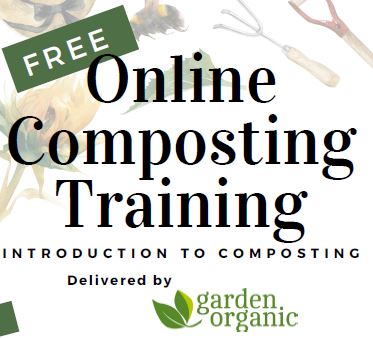Get composting
Composting is good for your garden, but it is also good for the environment. Over 30 per cent of the average household bin can be composted – that’s nearly 150kg a year, which is about the weight of a baby elephant!
Composting at home is easy, and will give you free, good-quality compost.
The main thing to remember is to balance your 'greens' - which have lots of nitrogen - with your 'browns' - which don’t have much nitrogen - to keep your compost healthy.
For a free online home composting training course please visit East London Waste Authority’s home composting online course with Garden Organic.
Green compostable items include:
- Fruit and vegetable scraps and peels
- Tea bags, coffee grounds and filter paper
- Crushed eggshells
- Grass cuttings limited quantity
- Young hedge clippings
- Annual weeds, for example chickweed and speedwell
- Old flowers and nettles
- Manure
- Pond algae.
Brown compostable items include:
- Gerbil, hamster and rabbit bedding
- Egg boxes
- Thin cardboard, paper, ridged cardboard packaging, toilet and kitchen rolls, and newspaper (torn up into small pieces)
- Dry leaves (small quantities)
- Garden cuttings
- Hay Straw
- Woody twigs and hedge cuttings
- Ashes from wood, paper and lumpwood charcoal
- Sawdust and wood chippings
- Wool, cotton thread and tumble dryer lint
- Vacuum bag contents
- Shredded paper.
Please don’t add the following items to your compost bin:
- Cooked food waste
- Meat or fish
- Cat litter or dog waste
- Glossy magazines
- Roots of perennial weeds (that is those which return year after year)
- Diseased plants
- Plastic, glass or metal

